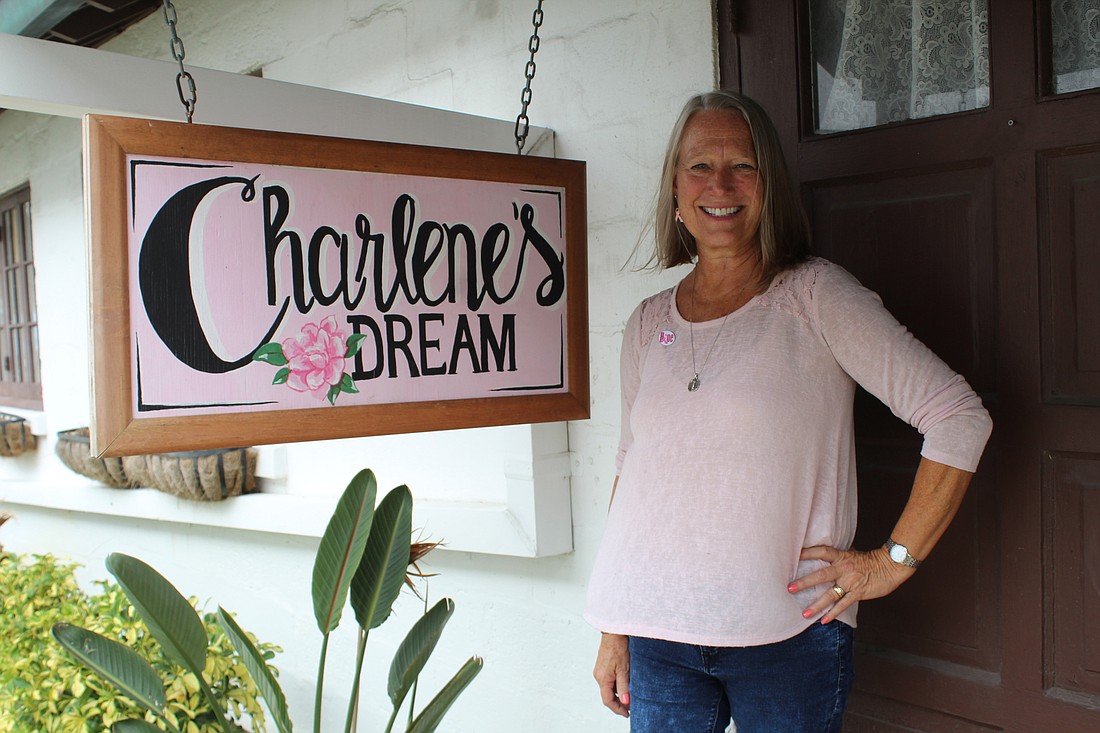- February 7, 2025
-
-
Loading

Loading

When Cindy Thornton was diagnosed with breast cancer in 2010, one local nurse helped her through the entire process — from start to finish, answering all her questions and supporting her through her journey to remission.
Her name was Charlene Brady. Aside from being a breast cancer survivor herself, Brady worked as a navigator nurse at Halifax Health and then at Florida Hospital, where she met Thornton shortly after her diagnosis. When Thornton went into remission, she also became a navigator nurse and worked closely with Brady, forming a lasting friendship.
It was then that Thornton, who is an Ormond Beach resident, learned that Brady dreamed of opening a free cancer support boutique for women. When Brady developed pancreatic cancer in 2015, that dream suddenly seemed out of reach. So Thornton and a small group of nurses decided to take action.
“It was our promise to her—a group of women that worked with her—that we would carry on her dream and that we would take care of the women in our community," Thornton said.
Right before Brady died, the women were able to set up a temporary cancer support boutique in a storefront on Beach Street. They named it "Charlene's Dream."
In the fall of 2016, the Seabreeze United Church of Christ donated the small cottage where Charlene's Dream is currently located. The church takes care of all the utility costs and all Thornton and the other nurses need to worry about is figuring out how they can best help out the women that come to them.
The purpose of Charlene's Dream is to offer local women the support, community, supplies and education they need during and after a cancer diagnosis and treatment, Thornton said.
Ormond Beach resident Eliani Berman is another volunteer nurse at the cancer support center. She was diagnosed with stage two breast cancer in 2014, and during that time, she met Brady. Berman is now in remission and she said while there's a lot of information available about breast cancer awareness and prevention, there's a lack of information about what happens after a diagnosis.
For example, Berman said many women believe having breast reconstruction after a mastectomy is similar to having a breast augmentation, and that they are devastated after they see the end results. She said she has seen women show up to the center with socks in their bras because they were not aware prosthetics exist.
“Nobody tells them these things," Berman said. "They’re not prepared for it. We’re there, not to scare people, not to tell them stuff that they don’t need to know, or don’t want to know, but whatever information they need, we inform them in the capacity of that person’s understanding.”
At the center, the women can acquire wigs, special camisoles, prosthetics and anything else they may need free of cost. Charlene's Dream operates solely on volunteers and donations, and the next big project they're fundraising for is adding a new AC unit in the cottage's fitting room, which currently remains at a balmy 87 degrees during the day.
Berman said the women usually don't believe them when the volunteers tell them everything is free in the cottage.
“The gratitude is huge, but it’s more than just gratitude," Berman said. "They feel like someone is listening to them and that someone cares about them.”
Both Thornton and Berman said Charlene's Dream was more than just free supplies for the women. They have crafted a community of women that support each other and created a safe space for them to talk about their problems and challenges with others that understand them.
“I hope that it can be a little bit of ray of hope for people at the end of the day, because treatment is tough," Thornton said. "Treatment is tough.”
Thornton said understanding their illness empowers the women. She said the journey is different for everyone. In her case, Thornton underwent chemotherapy for five months, had 35 sessions of radiation therapy and ultimately had to have a bilateral mastectomy.
She said recovery is a process, and even though she's been in remission for seven years, she's still dealing with longterm effects. However, Thornton remains positive and hopes she can be a role model for the women to help them envision what their lives can be like after they've beaten their cancers.
If she could give one piece of advice to women going through cancer, she said it would be that they will find strength within them during their journey but that they can reach out for help.
"Essentially you have to take the journey alone," Thornton said. "But there’s lifelines all the way along, and there are people that can help to point them out to you because so often we don’t know.